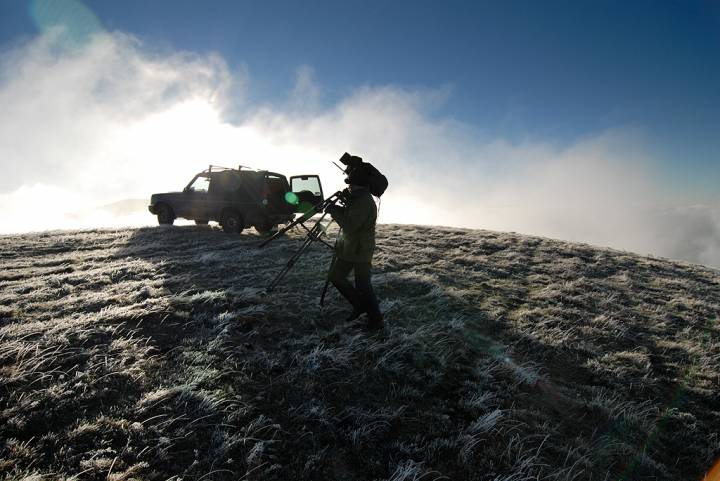- Exclusive interview with Nat Geo TV’s president MAURICE Van SABBEN
- 14/11/2010
-

- Share
- Tweet
-
Maurice Van Sabben is the current president of National Geographich Television International. In this article he reveals his passion for Spain and welcomes the UDENA Natural History Unit project.
A question which many people would like to know is: how does one reach the enviable post of president of Nat Geo TV Int. Could you tell us a bit about how you came to the world of Documentary Film Making and then to Nat Geo TV International?
National Geographic wasmy introduction to the world of documentary film making although I have been working in the broadcast industry since 1996 in various roles and countries. I have always had an interest in factual programming and when I was approached on behalf of National Geographic it was like a dream come true. Not only do I get to work with one of the world’s most iconic brands; I also get to work with a highly-talented team of people who produce and distribute films on a wide range of fascinating topics.
We have seen tremendous improvements in the image and sound quality of NH broadcast, especially since the arrival of HD. What further technological improvements to you foresee in the next 5 to 10 years that will enhance the viewer experience further still?
HD really did prove to be a game changer for documentary film making particularly where Natural History is concerned. 3D is a technology that I believe will add to the experience of watching the world around us. It is an exciting challenge for documentary makers, broadcasters and platform owners alike. Beyond 3D it is the convergence in our industry that will make for the most impactful shift. Viewers the world over will have more say in how they want to consume their content and when they want to. It is a challenge that everyone in our industry over the next years – from content creation to distribution – will have to take with both hands.
Spain has the greatest biodiversity of any country in Europe. During your 2 years attending college at the IESE Business School of Navarra’s University in Spain, how aware were you of Spain’s NH rich heritage? And how aware do you think Spanish people are about their environmental wealth and need to protect it?
Both before my time at IESE, during and afterwards when I worked in Madrid, I have had the good fortune to explore and visit most of Spain’s regions.
I literally crossed Spain in many directions discovering its stunning natural variety: from the Picos de Europa to the Coto Doñada, from the Cerdeña to the hills of the Basque country. Spain’s natural diversity is awe-inspiring. It is home to unique flora and fauna and to me, always surprising and fulfilling. I am not sure that the majority of Spanish people appreciate just how special their country is in terms of biodiversity. I guess it is always that way: you don’t appreciate what you have until it’s gone.
I hope that the work UDENA will undertake will go some way to making people aware of just how unique Spain is.
The mission of Nat Geo TV Int. is “Inspiring People to care about the Planet”, how can we inspire the people of Spain and Latin America to care about their environmental heritage?.
One way we are true to our mission at National Geographic is to fund exploration and conservation projects the world over. In many cases our documentaries cover what our Explorers set out to uncover. In the dissemination of that knowledge via television but more and more via digital platforms such as the web and wireless devices we fulfill on that mission. To inspire people, quite literally means to breathe life into people’s interests, their passions and their dreams.
If we can contribute to a general awareness about the world we live in and that challenge people to discover new avenues for themselves then we are doing our job.
I believe that the addition of UDENA to the world of documentary film making focusing on Spain and Latin America is an important step to make people aware of the wonders that their countries safeguard. Wonders that people can then enjoy and preserve for future generations.


